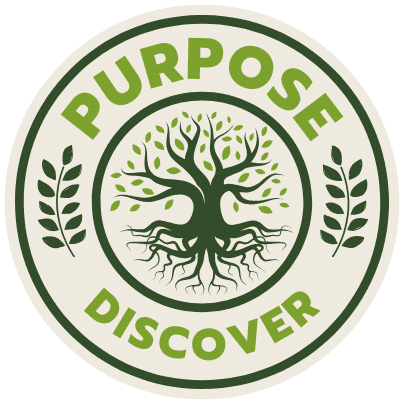You ever find yourself stuck at a crossroads, unsure whether the path you’re on really reflects who you are or where you want to go? It’s a maddening feeling, like you’re drifting without a compass. What if the secret to finding that true north isn’t some grand epiphany or a spiritual awakening, but something a lot more straightforward—and yet, surprisingly difficult? Honesty.
Let’s face it: honesty has this sneaky way of getting sidelined when life gets messy. We tweak stories, downplay failures, convince ourselves that the shiny version of events is the one worth believing. But when it comes to steering your life’s direction, no amount of sugarcoating can replace the raw, unfiltered truth about who you are, what you want, and what you’re willing to endure. And that’s where honesty earns its stripes.
Why Honesty Isn’t Just a Buzzword
When most people hear “honesty,” they think about telling the truth to others. But real honesty starts on the inside. It’s a relentless eye-opener. You have to be candid with yourself about your strengths, your limitations, your real motivations—not the polished ones you parade around social media or even your closest friends.
Here’s the tricky bit: being honest with yourself is exhausting. It’s like looking in a mirror that doesn’t just show your face but also stares back with your deepest fears and inconvenient truths. Do you really want to admit you’re in the wrong job? Or that a relationship is draining your spirit more than feeding it? Yet, those admissions are essential. Without them, any “personal direction” you set is built on quicksand.
The Path Toward Self-Discovery Is Paved with Brutal Truths
There’s a famous saying: “The truth will set you free, but first it will piss you off.” Every time I catch myself lying to myself, I’m robbing myself of the chance to course correct. Life’s little fibs add up like phone bills you forgot to pay—they compound and create a shadow that distorts your internal GPS.
You want to know why honesty feels so threatening? Because it demands accountability. If you’re honest about wanting to change careers but continue watching Netflix reruns at 3 a.m. every night, well, you’re not serious, are you? If you want deeper connections but avoid vulnerability, then that’s a choice, too. Brutal, sure, but better to know where you stand than to wander blind.
How Does Honesty Influence Your Life’s Direction?
When you’re brutally honest, you strip away the noise—the shoulds, the coulds, the “I wish I were this”—and get to the core of what motivates you. And this clarity is gold.
Imagine plotting a road trip without a map. You think you want the beach but halfway there, realize you actually wanted mountains. Now multiply that confusion across every big or small life decision. Honesty fine-tunes your internal map, making your journey less about wandering and more about purposeful steps.
Honesty informs your choices because it reveals:
🔍 Your true passions: Not the ones you’ve been told to chase, but the ones that light you up inside.
🛑 Your deal breakers: The values and boundaries you refuse to compromise, even when the path is tempting.
⚡ Your blind spots: Those pesky habits or beliefs that secretly sabotage progress.
The Relationship Between Integrity and Direction
You can’t talk honesty without bringing up integrity. Integrity is honesty’s cousin who lives on the other side of town—it’s the state of consistently walking the talk. When your actions match your words and beliefs, your personal direction becomes steadier and less prone to confusion.
Think of integrity as the fuel for your direction’s engine. Without it, you risk burning out or veering off track simply because you don’t trust yourself. When honesty holds hands with integrity, your internal compass doesn’t get hijacked by whims or external pressures. People notice this. They sense someone who’s genuine, and that magnetic quality often opens doors you didn’t expect.
Why So Many of Us Struggle with Honesty
It’s no surprise that honesty isn’t the easiest road to travel. Social norms, fear of rejection, and even insecurities construct formidable walls. Many of us grew up navigating “what’s polite” rather than “what’s truthful.” We quickly learn that sometimes honesty makes things awkward or even hurts relationships, so we mask the truth to keep the peace.
But here’s the rub: that strategy might work short-term, but it’s a pothole-ridden path if you want your life to have meaningful direction. Avoiding honesty delays growth, breeds resentment, and ultimately leaves you feeling disconnected from your own story.
Practical Ways to Cultivate Honesty in Your Daily Life
I’m all for grand philosophical ideas, but let’s get real: How do you actually get honest with yourself without having a panic attack or shutting down? Here’s the deal:
🌱 Journaling without judgment: Write down what you really feel, not what others expect you to feel. No censoring, just truth.
🙋♂️ Ask tough questions: Am I really happy in this role? What am I avoiding? What am I afraid to admit?
🧘♀️ Practice mindfulness: Silence the noise, get present, and listen to what your gut says when no one is watching.
💬 Seek challenging feedback: Real friends, mentors, or even therapists can reflect blind spots you miss.
Keeping it real is uncomfortable, yes. But it’s the compass that guides you back when life’s chaos tries to pull you off course.
Honesty in Action: Real Talk About Change
Have you ever made a “big change” in life without fully owning the reasons behind it? Maybe you quit a job because you hated it—super straightforward, right? But what if underneath it was fear of failure or a deep-seated belief that you’re not good enough?
When honesty is part of your decision-making, you unpack these layers first. It’s messy, and often it’s where the real work happens—the kind that no motivational quote or goal-setting worksheet can shortcut.
How do you know if the direction you’re headed is honest? Because there’ll be a sense of alignment. Even when things get tough, there’s a quiet confidence that you’re not betraying yourself by pretending to be someone you’re not.
What Happens When You Ignore Honesty?
Ignoring honesty is like trying to drive a car blindfolded because you don’t want to “see” the potholes. Eventually, you crash, or at least get a terrible jolt. Avoiding honest self-reflection gives you a direction, sure, but it’s borrowed from someone else’s script. It’s exhausting and ultimately unsatisfying.
People who dodge honesty often find themselves chasing after hollow versions of success or happiness. The tough choices? They postpone. The real talk about what’s wrong? It stays buried. That disconnect can manifest as anxiety, burnout, or a pervasive feeling of “what am I even doing?”
And Yet, Honesty Is Liberating
Here’s the catch: honesty doesn’t chain you down; it sets you free. It frees you from carrying the weight of pretending. Builds resilience because knowing yourself means you’re more prepared for setbacks. Creates authenticity in relationships because you’re not hiding parts of yourself.
And guess what? Authenticity attracts the right opportunities and people—not because you’re perfect, but because you’re real.
If you find yourself swinging wildly between indecision and self-doubt, consider honesty your anchor. It might sting at first, but over time, it’s the clearest way to map out a life worth living.
Curious about digging deeper into your purpose and how honesty can unlock it? Check out this thoughtful resource on discovering your personal purpose. It’s full of insights that can make your own journey clearer and a lot less lonely.
Before you know it, honesty becomes less of a chore and more of a habit—a fierce, loyal guide that points you not just forward but true. And isn’t that all we really want? To know that wherever we’re headed, it’s exactly where we’re meant to be.

